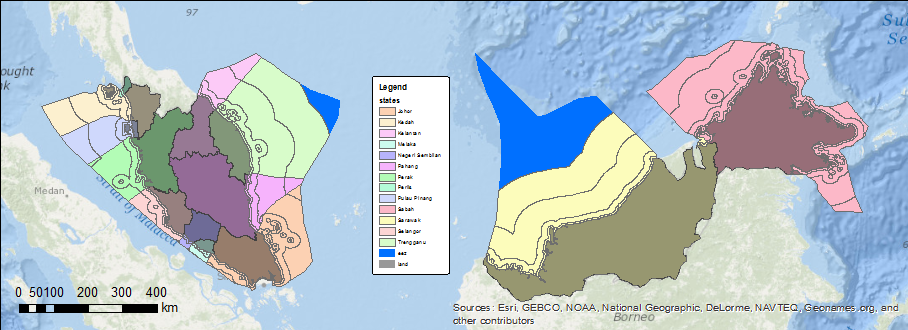Hey @bbest. Question on what to do for polygons that extend far beyond the calcofi study area. The biggest example here is with territorial and non-territorial waters. I have found these polygons no problem (available here and here), but these polygons extend way beyond the calcofi zone, which is obviously too much. Should I clip the waters polygons to the boundary of the calcofi study area that you already found?

Locate spatial data from Erin's list, download into Google Drive into
areas-of-interestfolder under data/, and read into R (e.g. withsf::read_sf()README.mdwith:I think these are the main ones -- added some specificity below:
CalCOFI
International
Federal
[x] Sanctuaries: sanctuaries.geojson
[x] IEA California Current
[x] Freshwater ecoregion - SoCal Bight
[ ] CCE biological sampling areas (Central CCE, Southern CCE)- https://www.pcouncil.org/documents/2020/02/g-1-a-iea-team-report-1.pdf/
[x] Federal waters: 3-12nm (see image on page 16 http://www.opc.ca.gov/webmaster/ftp/pdf/docs/Documents_Page/Noteworthy/Overview_Ocean_Coastal_Laws.pdf)
[x] EEZ federal: 3 (12?) to 200 nm (see MarineCadastre.org) OR (see image on page 16 http://www.opc.ca.gov/webmaster/ftp/pdf/docs/Documents_Page/Noteworthy/Overview_Ocean_Coastal_Laws.pdf)
BOEM
State
County/local
Overlap strategy
We don't need to keep features that do not intersect CalCOFI study area, eg Sanctuaries on the East Coast, but we don't want to clip intersecting features to the study area, ie keep the original polygon shape. So technically, that means keep all
sf::st_intersects()(notsf::st_intersection()).Motivation
Goal: Get AOIs that intersect CalCOFI study area for extraction of key variables over time, a la ...
https://shiny.ecoquants.com/calcofi/